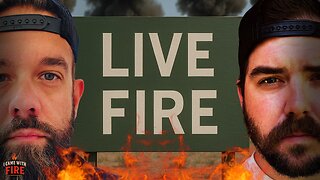Premium Only Content

General Knowledge Questions
Knowledge can be defined as awareness of facts or as practical skills, and may also refer to familiarity with objects or situations. Knowledge of facts, also referred to as propositional knowledge, is often defined as true belief that is distinct from opinion or guesswork by virtue of justification. While there is wide agreement among philosophers that it is a form of true belief, many controversies in philosophy focus on justification: whether it is needed at all, how to understand it, and whether something else besides it is needed. These controversies intensified due to a series of thought experiments by Edmund Gettier and have provoked various alternative definitions. Some of them deny that justification is necessary and replace it, for example, with reliability or the manifestation of cognitive virtues. Others contend that justification is needed but formulate additional requirements, for example, that no defeaters of the belief are present or that the person would not have the belief if it was false.
Knowledge can be produced in many different ways. The most important source is perception, which refers to the usage of the five senses. Many theorists also include introspection as a source of knowledge, not of external physical objects, but of one's own mental states. Other sources often discussed include memory, rational intuition, inference, and testimony. According to foundationalism, some of these sources are basic in the sense that they can justify beliefs without depending on other mental states. This claim is rejected by coherentists, who contend that a sufficient degree of coherence among all the mental states of the believer is necessary for knowledge.
Many different aspects of knowledge are investigated and it plays a role in various disciplines. It is the primary subject of the field of epistemology, which studies what we know, how we come to know it, and what it means to know something. The problem of the value of knowledge concerns the question of why knowledge is more valuable than mere true belief. Philosophical skepticism is the controversial thesis that we lack any form of knowledge or that knowledge is impossible. Formal epistemology studies, among other things, the rules governing how knowledge and related states behave and in what relations they stand to each other. Science tries to acquire knowledge using the scientific method, which is based on repeatable experimentation, observation, and measurement. Many religions hold that humans should seek knowledge and that God or the divine is the source of knowledge.
-
 30:59
30:59
The Charlie Kirk Show
11 hours agoCharlie Kirk's beloved wife, Mrs. Erika Kirk addresses the Nation.
567K1.66K -
 1:53:28
1:53:28
Man in America
19 hours agoLIVE: Assassin Arrested? Civil War? Are We Being Played?? | LET'S TALK
114K158 -
 2:10:33
2:10:33
Badlands Media
16 hours agoOnlyLands Ep. 24: Processing Tragedy, Cancel Culture, and the Next Spark
77.4K30 -
 2:27:53
2:27:53
TheSaltyCracker
12 hours agoGot Him ReeEEStream 9-12-25
296K403 -
 52:11
52:11
Sarah Westall
13 hours agoBread and Circus Keeps you Financially Ignorant – Its Better for the Elites w/ Chris Russo
81.3K8 -
 3:49:08
3:49:08
I_Came_With_Fire_Podcast
20 hours agoFriday Night Live Fire
72.1K7 -
 1:20:39
1:20:39
Flyover Conservatives
22 hours agoFrom Demonic Deception to Divine Direction: Sid Roth’s Radical Encounter With God | FOC Show
75K1 -
 2:50:58
2:50:58
Chrissie Mayr
10 hours agoChrissie Mayr Reactions to Charlie Kirk, Liberal Celebrations, and More
64.1K43 -
 1:05:46
1:05:46
AlaskanBallistics
10 hours ago $4.76 earnedRemembering Charlie Kirk
57.8K10 -
 1:23:27
1:23:27
Glenn Greenwald
13 hours agoNetanyahu’s Crude Exploitation of Charlie Kirk’s Death to Get the American Right Back into Line; Plus: Q&A With Glenn on Charlie Kirk's Assassination, Online Civil Discourse, and More | SYSTEM UPDATE #514
223K188